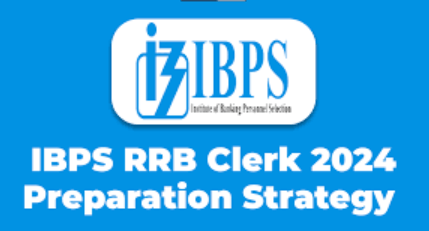6 Proven Strategies to Boost Your Score in the IBPS RRB Clerk Prelims

Struggling to improve scores despite long hours of preparation? This is a common concern among those aiming to crack the prelims stage. Success in the exam is not just about how much time is spent but how that time is used.
A focused plan is often the missing piece for many IBPS RRB Clerk aspirants. Strategic preparation, combined with regular practice and self-evaluation, plays a crucial role in achieving a high score. With the right methods, even tough sections can become manageable and lead to noticeable improvement.
1. Focus on Section-Wise Strength Building
Each section in the prelims paper requires a slightly different approach. Rather than giving equal time to all areas, concentrating on weaker segments brings better results over time. For some, speed in numerical reasoning needs extra attention, while others may find reading comprehension more demanding.
By identifying personal strengths and weaknesses, the study plan becomes more refined and effective. Repeated focus on problem areas not only improves scores but also boosts confidence during actual exam situations. This strategy enables more effective time allocation across sections during the assessment.
2. Practice with Timed Mock Tests
Mock tests simulate the real examination environment, highlighting problem-solving patterns. Practicing regularly under time constraints helps candidates manage their pace and reduce last-minute pressure. These sessions highlight question types that may require alternative strategies.
The goal of each mock test is to learn from mistakes without repeating them. When taken seriously, each attempt becomes a tool for refinement. Most candidates who succeed consistently rely on this method to sharpen their preparation. It also helps develop mental stamina for the exam day. Checking trusted bank exam preparation platforms offering mock test series can support this process without added complexity.
3. Analyze Performance to Identify Gaps
Just practicing tests is not enough. Evaluating performance helps understand the cause behind repeated mistakes. It might be due to misreading questions, rushing through sections, or simply overthinking.
After each session, reviewing incorrect answers and slow responses is valuable. Over time, these insights help remove patterns that affect results. This phase of preparation often separates those who improve steadily from those who repeat the same errors. Self-reflection makes each round of practice more meaningful.
Read also: How to Use Youdao Dictionary to Improve Translation Accuracy and Efficiency
4. Develop Speed Without Losing Accuracy
Individuals need to balance speed and precision to score well in exams. Attempting more questions is useful only when the accuracy rate remains high. Speed without accuracy lowers the overall score, making it more difficult to progress to the next phase.
Candidates often solve simpler problems first before moving to challenging ones. It reduces the time spent on paper and builds momentum. Such strategies can be refined further by analyzing previous performances and adapting accordingly. Quick decision-making becomes easier with regular habits.
5. Build a Strong Foundation in Basics
Complex questions are often built on simple principles. Understanding these principles reduces the need for guesswork and shortcuts. When candidates know why a method works, they apply it more confidently during high-pressure moments.
Working on fundamentals across all sections makes the preparation more stable. This approach gives clarity, especially when tackling unexpected questions during the IBPS prelims. A strong foundation minimizes the risk of confusion under stress. It also builds the confidence needed to approach each question with a clear and steady mindset.
6. Stay Consistent and Avoid Distractions
Preparation takes weeks of steady effort, and distractions can quickly reduce its effectiveness. Building a fixed study routine helps maintain focus and prevents time loss. Setting short goals within this routine creates a sense of achievement and maintains momentum.
Avoiding external pressures and social noise can help retain concentration. Those who progress steadily are often the ones who stay grounded in their approach. This discipline not only improves test performance but also develops long-term study habits. Stability in routine usually leads to steady progress.
The IBPS RRB Clerk exam demands consistency, patience, and the right mindset. Staying committed through each phase often leads to lasting growth. Likewise, taking small and steady actions can shape a much larger outcome over time. So, utilize the strategies mentioned above to get your dream job.
